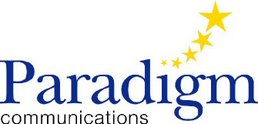Several years ago, a federal jury held that Abdul Azimi, a Muslim immigrant from Afghanistan, had suffered years of vicious racial invective and physical abuse at his workplace. The evidence established that co-workers had regularly taunted Azimi with the N-word, linked him by blood to Osama bin Laden and Saddam Hussein and left notes with swastikas and profanity-laced vituperations against his faith. They assaulted him, forcing pork into his mouth and pockets as they denounced his religion in the crudest terms. Shortly after filing a complaint against this hateful and abusive treatment, and just a few weeks after the attacks of 9/11, Azimi was summarily fired.
Despite wholeheartedly agreeing that Azimi had suffered discrimination, the jury found that the unlawful harassment had not caused Azimi “to be damaged by emotional distress, pain, suffering, emotional anguish, loss of enjoyment of life and/or inconvenience.” Azimi did not receive a single penny in damages. On appeal, the verdict was affirmed, making it fair to wonder whether the courthouse door is effectively shut for Middle Easterners seeking redress for brazen civil rights violations. Surprisingly, as far as civil rights suits involving Middle Easterners go, Azimi was a relative success for the plaintiff. In 2007, the year of the Azimi appellate decision, courts reported decisions on 69 employment discrimination cases involving claims by Muslims, many of Middle-Eastern descent. Of these cases, only Azimi resulted in a plaintiff’s verdict. In the words of journalist Adam Liptak, it was the lone victory, “if you can call it that.”
Though accelerated by the tragic events of 9/11, Islamophobia and anti-Middle Eastern sentiment have festered in our country for at least a generation. During this time, Middle-Eastern Americans have faced rising discrimination—through targeted immigration policies, racial profiling, a war on terrorism with a decided racialist bent, and increasing rates of workplace harassment and hate crime. Indeed, the experiences of many Middle Eastern Americans readily belie the Panglossian trope of colorblindness that has permeated public discourse on race in recent years.
“The way to stop discrimination on the basis of race is to stop discriminating on the basis of race,” proclaimed Chief Justice Roberts just last year. With these words, the Supreme Court effectively ended the use of affirmative action at secondary schools. However, Roberts’ edict against discrimination apparently gave a federal appellate court no pause when it declared earlier this year that “Race or ethnic origin of a passenger may, depending on context, be relevant information in the total mix of information raising concerns that transport of a passenger ‘might be’ inimical to safety.” Cerqueira v. American Airlines (2008). On this basis, the Court took the remarkable step of reversing the jury verdict for a plaintiff who, because of his Middle Eastern appearance, had been forcibly deplaned despite clearing all security checks. It is particularly ironic that some of the most vigorous proponents of government colorblindness in social policies represent the most ardent supporters of government profiling of Middle Eastern and Muslim Americans.
This year’s presidential campaign exemplified the challenges facing both Middle Eastern and Muslim Americans. During both the nomination battle and general election, political operatives attacked Barack Obama’s candidacy by linking him to Islam. Robocalls charged Obama with “palling around” with terrorists, rally emcees stressed Obama’s middle name of Hussein, advertisements linked Obama’s support of driving licenses for illegal immigrants to a desire to empower jihadists, and partisan bloggers highlighted photographs of Obama donning a turban and questioned Obama’s early education at an allegedly radical madrassa. The implication, of course, is that ties to Islam are inherently suspect; innuendoes of terrorism, religious extremism, and barbarism closely follow. Such an appeal to our worst prejudices betrays our most fundamental values of inclusion and tolerance.
And the unfortunate taint does not merely apply to Muslims. For example, I am neither Arab nor Muslim. But I am frequently perceived as both. In the popular imagination, we have conflated geography, ethnicity and religion to reify the Middle East, Arab descent and Islamic fundamentalism into a single Axis of Evil. We therefore assume anyone of Middle Eastern descent is Muslim. The depth of this misperception is remarkable. In fact, only 23% of Arab-Americans are Muslim. Many Iranian-Americans are Jewish, Baha’i, Christian or Zoroastrian. Armenian-Americans are mostly Christian.
In his endorsement of Barak Obama’s candidacy, Colin Powell cited his concerns about the underhanded attempts to link Obama to Islam. To suggestions that Obama is a Muslim, Powell eloquently pointed out, “the correct answer is, 'He is not a Muslim, he’s a Christian, he’s always been a Christian.' But the really right answer is, ‘What if he is? Is there something wrong with being a Muslim in this country?’” Unfortunately, in some circles, that answer is still a “yes.”
Historically, no country has ever been more open and welcoming to immigrants than the United States, and no country has ever demonstrated a greater respect for civil rights and the protection of minorities. The election of Barack Hussein Obama highlights this point. However, as the tenor of the presidential campaign and recent events involving Middle Eastern and Muslim Americans have demonstrated, we still have much work to do.
John Tehranian is a professor of law at Chapman University in Orange, California, an entertainment and intellectual property attorney, and the author of Whitewashed: America’s Invisible Middle Eastern Minority (NYU Press, 2008). Coincidentally enough, he and Barack Obama graduated from the same high school in Honolulu, Hawai’i and the same institution of higher learning in Cambridge, Massachusetts.















